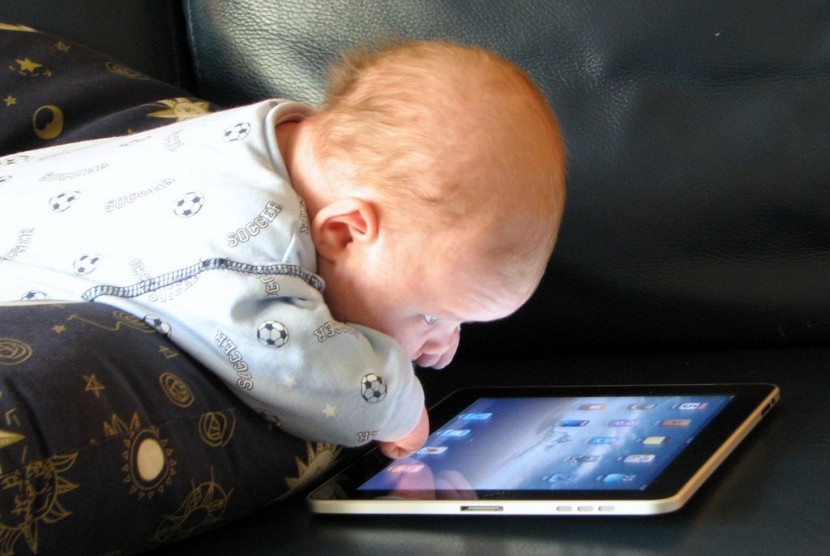Baby boys who are exposed to screens two-four hours a day are at risk of autism at age 3.
REPUBLIKA.CO.ID, JAKARTA — Parents who have a baby boy should think twice about letting their baby be exposed to screens. A recent study revealed a link between hours of staring at screens or access to watching television and gadgets with autism spectrum disorders.
spectrum disorders autism is a developmental disorder in the form of difficulties in social communication. The behavior, interests, and activities of the sufferer tend to be limited and have a repetitive pattern.
Experts from the University of Yamanashi, Japan, initiated research on the relationship screentime children and autism. It found that baby boys who were exposed to screens two to four hours a day had a 3.5 times greater risk of developing autism at age three, when compared to baby boys who didn’t watch TV.
The risk of autism increases as the baby spends more time staring at screens. Boys who watched less than an hour of TV per day at age one were 1.38 times more likely to be diagnosed with autism two years later. That’s when compared to children who don’t watch TV at all.
Meanwhile, the risk increased to 2.16 times higher in one-year-old boys who watched TV one to two hours per day. The risk jumped to 3.48 times higher among baby boys who watched two to four hours each day.
Meanwhile, baby boys who were exposed to screens for more than four hours per day were 3.02 times more likely to be diagnosed with autism than those who didn’t watch TV. The findings are a warning to parents, especially in the midst of the Covid-19 pandemic which triggers rapid changes in lifestyle.
The time children are exposed to screens is known to increase during the global Covid-19 pandemic. From the results of the study, the parents of 84,000 were asked how long the average time their children watched TV or DVD at the age of one year. The research team also asked parents about the diagnosis of autism in their children.
–


